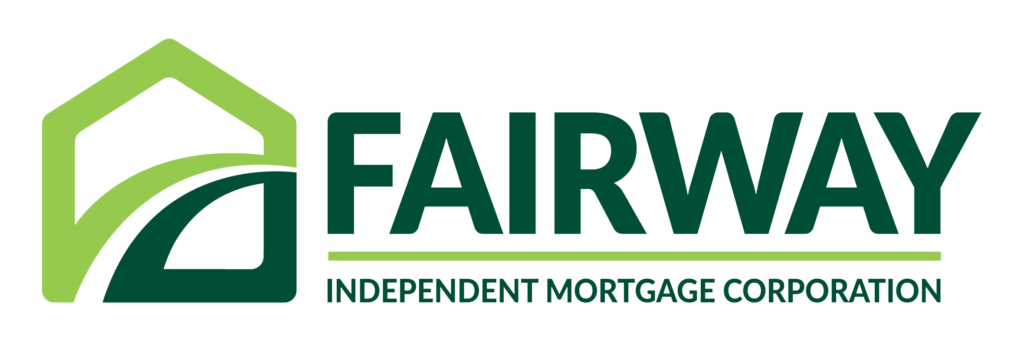Aging at Home Vs. Other Living Options

Where you live in retirement influences so many aspects of your life — from your family life to your hobbies, comfort, safety, cash flow and more. While many older adults want to age in their lifelong homes, others seek alternative living options that closely align with their current and future needs and wants.
Whatever your situation is, there is a wide spectrum of living options for you to consider. There is no one-size-fits-all “best” living option — so give careful thought to what’s most important to you for this phase of your life.
Aging at Home
According to a recent AARP study, the vast majority of older adults prefer to live in their own homes and communities for as long as possible.
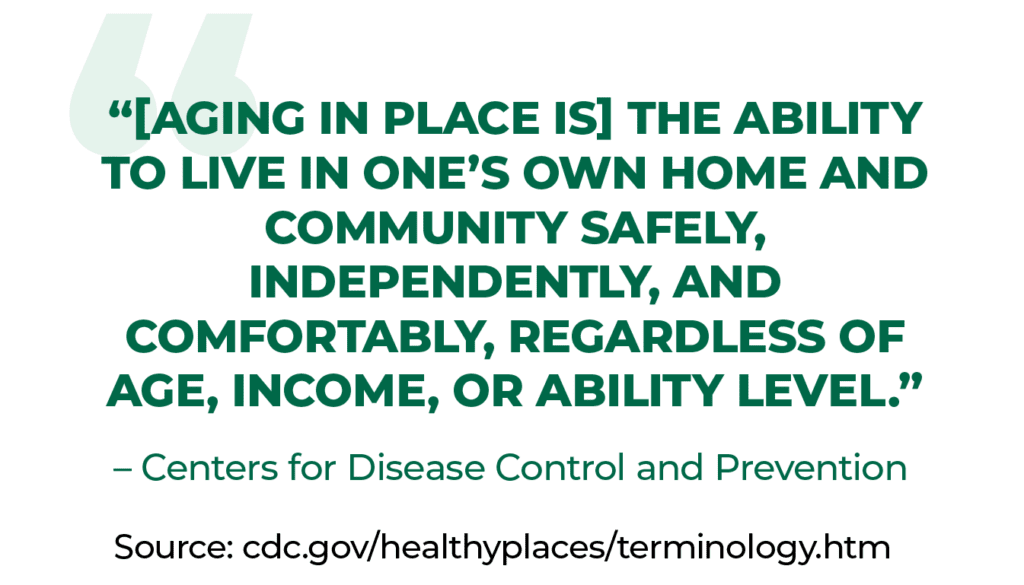
There are many advantages to aging in the home you know and love, such as:
- The comfort of home
- Proximity of family members
- Familiar neighborhoods and neighbors
- Social engagement in the community
- Affordability
- Ability to remain independent
Aging in place does not mean you have to do everything yourself. You, of course, can get assistance from family and friends along the way. And you can add aging-in-place services (which may or may not be covered by your health plan or government benefits), such as meal delivery, transportation and home-care services. However, aging in place does involve planning for the future.
Home Modifications
If you want to age in place and your home isn’t designed for long-term care, it’s wise to consider home modifications that can increase your safety and comfort. There are professionals, such as occupational therapists, who can help you assess the modifications required to make your home both accessible and safe. Here are a few common modifications:
Widen Doorways
Navigating your home can be made easier and safer with wider doorways, especially if you rely on an aid such as a walker or a wheelchair.
Install Ramps
Falls are a leading cause of injury for older adults. There are many types of ramps, inside and outside the home, that can help prevent falls and accommodate those in a wheelchair.
Bathroom Modifications
Aging in place often means reconfiguring your bathroom space. For instance, replacing your standard bathtub with a walk-in shower can make entering and exiting the respective area easier and safer. Adding a fold down seat and safety bars can help prevent slips and falls.
Kitchen Modifications
As you age, you may find the design of your kitchen is no longer ideal. There are many ways to increase the usability, safety and enjoyment of your kitchen area — for instance, you can hire a contractor to lower your countertops.
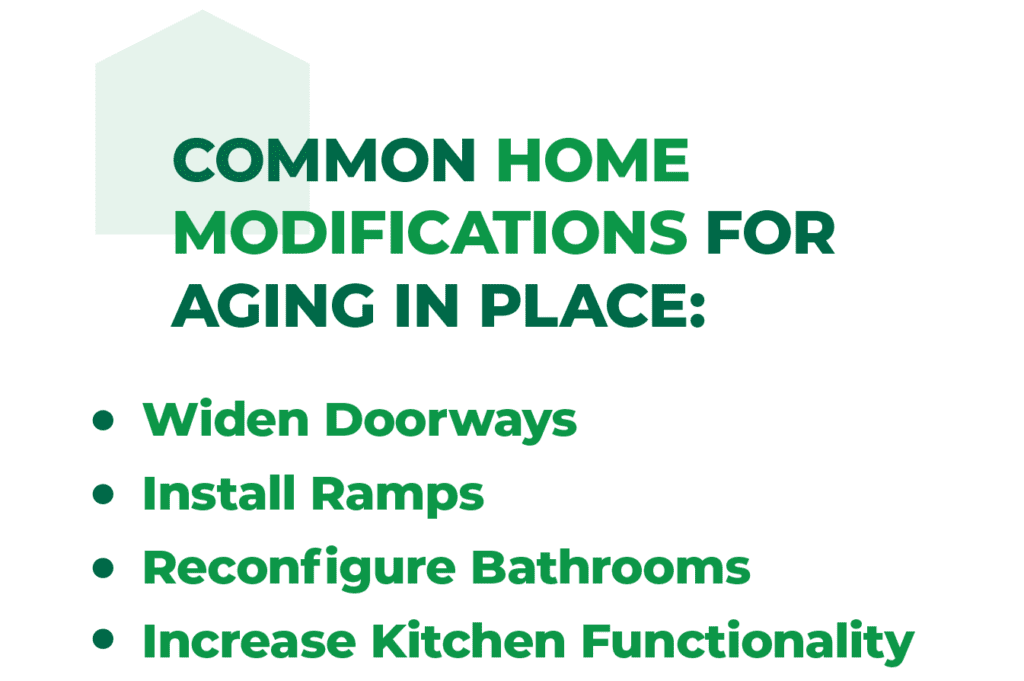
Long-Term Care
The unfortunate reality is that most older adults are going to someday need some form of in-home care or long-term care. While aging in place tends to be more cost effective than living options that include specialized care, if/when you need specialized care, the costs to provide such care in the comfort of your home can be significant. For example, the median annual nationwide cost for in-home care health aide is $61,776.
Using Your Home to Stay at Home
If you are an older-adult homeowner with equity in your home, you may want to consider putting your equity to work to help you cover the costs of aging in place. There are several home equity release products available that enable seniors to access built-up in equity in their homes while continuing to live in and own the home.
One such product is a HECM (Home Equity Conversion Mortgage) loan, the only reverse mortgage insured by the Federal Housing Administration (FHA). To put it briefly, a HECM allows homeowners 62 and older to access a percentage of their home equity as cash or a line of credit. The borrower can pay as much or as little toward the loan balance each month as they wish, with most HECM borrowers opting to make no monthly mortgage payments (though they must live in the home and pay property charges, like taxes and insurance).
Like any mortgage, the loan balance eventually must be repaid. However, a HECM balance does not typically become due and payable until the last surviving borrower permanently leaves the home (e.g., passes away or moves into a nursing home), regardless of how far into the future that may be. For a more in-depth look at the features of HECM reverse mortgages, we’ve covered in detail how a HECM works.
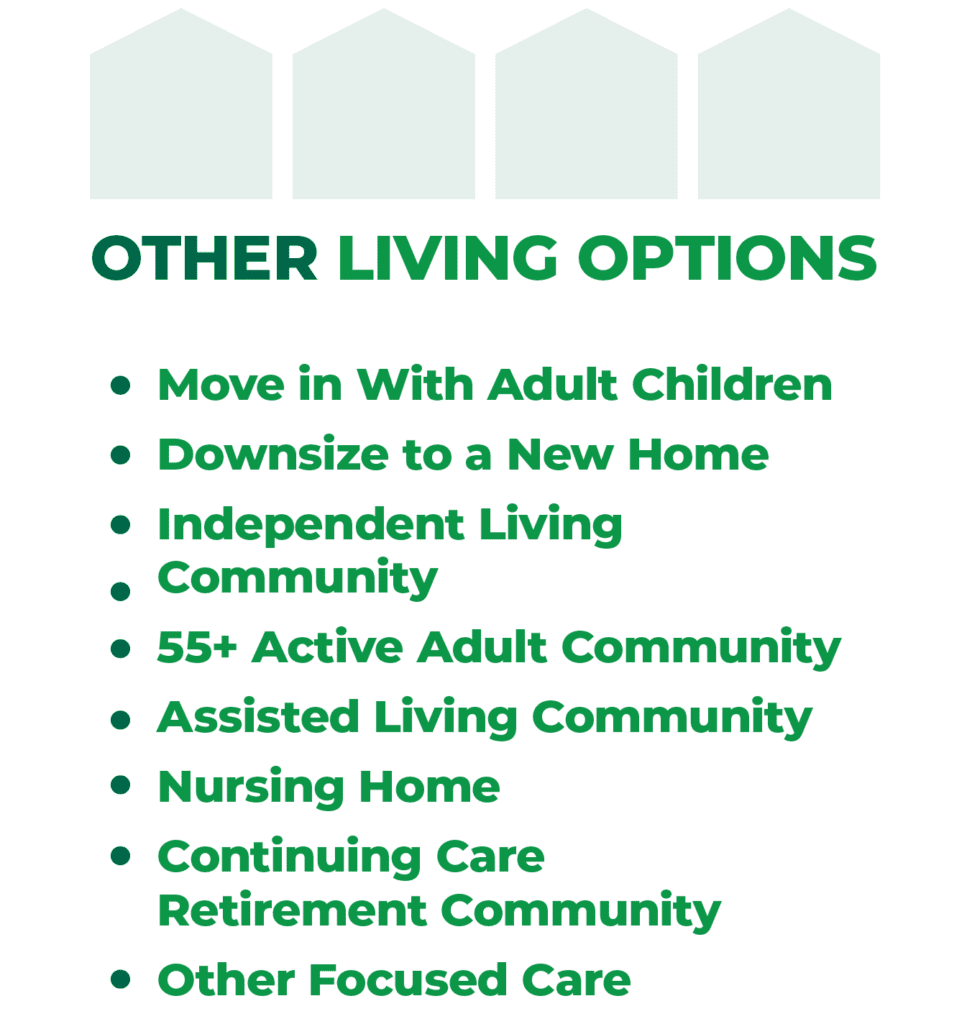
Move In with Adult Children
Moving in with family can be the most affordable option and has the added benefit of helping with loneliness. Of course, there is a lot to consider with this type of arrangement. If it’s something you are considering, a good place to start is to have a frank conversation with your child.
Downsize to a New Home
Was your current home picture-perfect for raising your family? And now are you now finding it too big or too outdated? Downsizing to a smaller home or condo can make a lot of sense in the right situations. For example, consider how a modern, single-story condo that includes universal design and low-maintenance living can help you to age in place more comfortably.
There can also be financial advantages when you downsize. A smaller, energy efficient space could mean you’ll be spending less each month on utilities. If you own your current home outright, based on the price difference, you may be able to pocket a nice profit when you sell your home and buy the new one.
Did you know? A reverse mortgage can also be used to purchase a new home. It can be a way for you to increase your purchasing power and keep more of the profits from the sale of your home to use as you wish.
Independent Living Community
If a low-stress, all-inclusive housing lifestyle is your goal, then an independent living community may be right for you. These communities generally don’t offer medical services, so they’re best for those who don’t yet need assistance for daily living, like dressing and bathing. There are usually amenities, like pools and a clubhouse. And you don’t have to sweat things like lawncare and cooking — the complex typically handles all that.
55+ Active Adult Community
Do the ever-present opportunities for social engagements with like-minded, young-at-heart retirees excite you? If you’d enjoy group travel, on-site dining, recreation and more, then living in a 55+ Active Adult Community might be right for you. These communities typically offer amenities like a pool and exercise rooms. Unlike an Independent Living Communities, with 55+ Active Adult Communities you must purchase the home and you’ll be a homeowner, which means you will be responsible for the property charges, like a mortgage, taxes and property maintenance.
Assisted Living Community
If you have challenges with just some activities of daily living, such as you require mobility assistance but don’t require much in the way of medical assistance, then an assisted living community may be right for you. Assisted living communities typically provides meals, transportation to doctor’s appointments, housekeeping and such.
Nursing Home
If you need close medical care and supervision and assistance for daily activities, then a nursing home might be right for you. You get more personalized medical care at a nursing home, which also means it’s much pricier than most other living options.
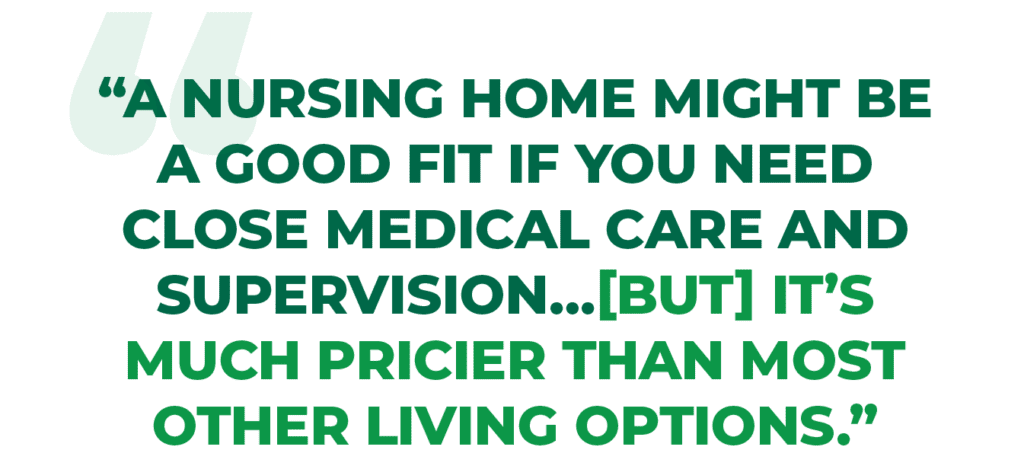
Continuing-Care Retirement Community
If you are independent now but anticipate changing needs, and you don’t want to have to move again down the road to accommodate such changing needs, then a continuing-care retirement community may be right for you.
Other Focused Care
There are living options that specialize in whatever it is that is a challenge for you — and more and more options are popping up every day. For instance, if you are battling dementia, you may want to explore a memory care facility. It’s worthwhile to research facilities that cater to your needs to see what may be a good fit.
In Summary
Your choice of housing later in life is one of the most important decisions you can make. Understanding what your housing options are and identifying those that closely align with your lifestyle goals is a great first step in making a wise choice.
At Fairway, we offer a wide array of mortgage solutions — including reverse mortgage loans — that can help you enjoy the quality retirement housing lifestyle you deserve. Contact us today to learn more.
Copyright©2023 Fairway Independent Mortgage Corporation (“Fairway”) NMLS#2289. 4750 S. Biltmore Lane, Madison, WI 53718, 1-866-912-4800. All rights reserved. Fairway is not affiliated with any government agencies. These materials are not from HUD or FHA and were not approved by HUD or a government agency. Reverse mortgage borrowers are required to obtain an eligibility certificate by receiving counseling sessions with a HUD-approved agency. The youngest borrower must be at least 62 years old. Monthly reverse mortgage advances may affect eligibility for some other programs. This is not an offer to enter into an agreement. Not all customers will qualify. Information, rates and programs are subject to change without notice. All products are subject to credit and property approval. Other restrictions and limitations may apply. Equal Housing Opportunity.
